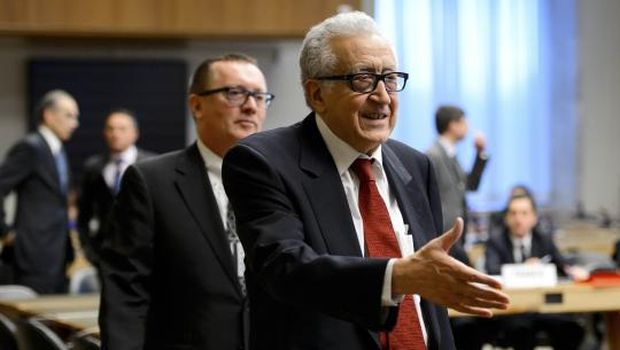With the Syrian civil war set to enter its fourth year in March, having exacted terrible human losses upon the country which have dwarfed even those of previous civil wars and internal conflicts in the region, and with increasingly more brutal atrocities committed by the Assad regime showing no signs of letting up, the question which must be asked before this year’s end is: Will the Syrian people and the whole region be able tolerate yet another year of destruction and devastation?
For unless there is real seriousness among all parties influential in the crisis, we will very likely find ourselves facing this same question come the end of 2014.
The conflict has now taken on a dimension and gravity unexpected by anyone watching the events unfold back in 2011, when the Syrian people marched out in peaceful demonstrations calling for more rights, and better social and living standards. Very quickly, and before the eyes of the world, this hopeful scene began to transform into a ferocious war in favor of the regime and become a regional and international crisis in which major global players each took their sides, the price of which has been paid, tragically, by the Syrian people.
No one during the first few months—or even during the first year—of the crisis would have envisaged it lasting this long, or that the regime would be able to turn it into a sectarian conflict; all bets were initially on the rapid fall of the regime.
But now, many people have accepted the dire possibility that this war could last for a number of years to come, with both sides seemingly unable to end it in their favor.
This may well turn out to be true—unless there is an international intervention which can impose a new reality on the ground and pave the way for a transitional phase which could take the country out of its crisis.
There is a responsibility here, not only moral but also political and strategic, lying squarely on the shoulders of the international community. They must put an end to this crisis, which becomes ever more complicated day after day and which threatens regional security—even international security—through the problems we read about in news reports about the flow of extremist fighters from the region and from Western countries into Syria—extremists who find opportunity in these crises to establish a foothold in the region from which to spread their ideologies. Instead of helping to find a solution to the conflict, they pour oil onto the fire.
This responsibility is now even heavier because the impotence shown by the international community has produced numerous complications in the Syrian crisis—most notably the increase in the ferocity of the regime’s bombardment of towns which are outside its control and the infiltration into the country by extremist organizations through the borders, the latter a situation which many Arab voices have been predicting since the start of the crisis. The clear message was that leaving the conflict as it was without serious attempts to end it would put the whole region in a difficult position, one which has now become an issue for everyone.
Nobody believes that foreign intervention in the affairs of another country is an ideal situation—that would be exemplified by all the internal factions in Syria finding their own solutions. However, the gulf between dreams and reality is interminably wide. So if the crisis deteriorates, and extremist fighters have no other option but to kill all their opponents, there will be a need for external help to impose solutions and provide guarantees, to stop revenge killings and to monitor the flow of weapons—and to give hope that there will be aid available for the reconstruction of the country.
But the Syrian crisis has now been given its first real opportunity to see the light at the end of the tunnel: in the form of the Geneva II conference in January.
The international community must not waste this opportunity. The excuse that the internal parties in the conflict—whether regime or opposition—are the ones at fault is no longer a viable one; the international players in the conflict have cards they can use to apply pressure on whichever side they are supporting, forcing them to accept a political solution which guarantees a genuine transitional phase for the conflict.
